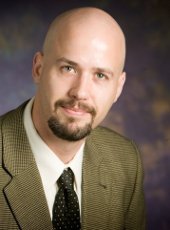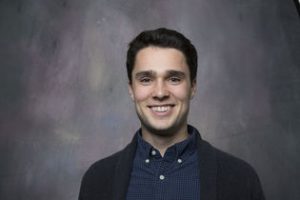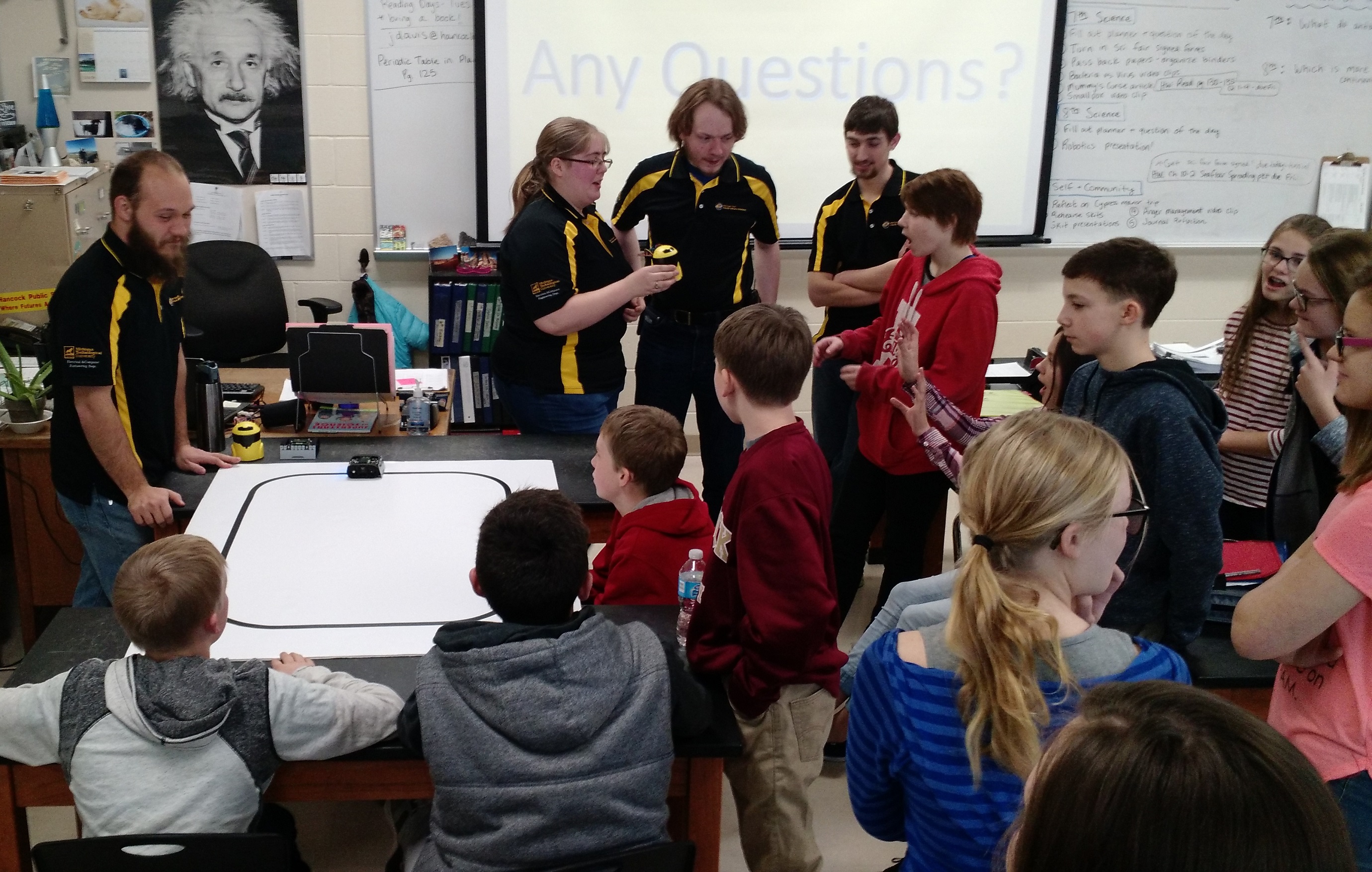 Members of the Robotic Systems Enterprise (RSE) at Michigan Technological University recently visited Jen Davis’ eighth grade science class at Hancock Middle School to share their excitement in the rapidly growing field of robotics.
Members of the Robotic Systems Enterprise (RSE) at Michigan Technological University recently visited Jen Davis’ eighth grade science class at Hancock Middle School to share their excitement in the rapidly growing field of robotics.
During the activities, students were shown how to use Scratch, a drag-and-drop programming platform which enables beginners to learn programming techniques without having to use complex syntax. From the Scratch platform, students were then shown how to create simple programs such as Hello World, which is the induction into a myriad of programming languages.
The visit was a huge success as the students enjoyed interacting, editing, and playing the Scratch programs that they helped the RSE Outreach members to create. Through events like this, RSE hopes to inspire future generations to the area of robotics and STEM education.
The Robotic Systems Enterprise is housed within the Department of Electrical and Computer Engineering and is advised by Dr. Glen Archer. RSE is an industry-driven enterprise that focuses on seamlessly integrating exceptional knowledge in electronics, robotics, and programming to solve real world engineering problems.
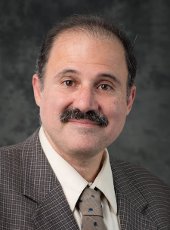

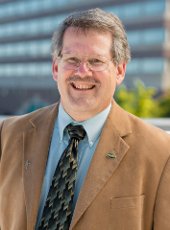
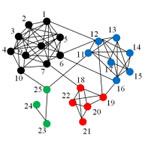
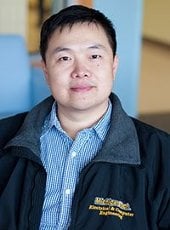
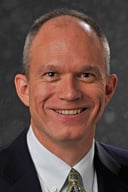 Dr. Paul Juodawlkis, assistant leader of the Quantum Information and Integrated Nanosystems Group at
Dr. Paul Juodawlkis, assistant leader of the Quantum Information and Integrated Nanosystems Group at 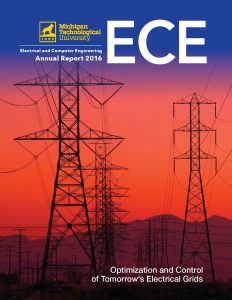 We are happy to share with you our newly released
We are happy to share with you our newly released 